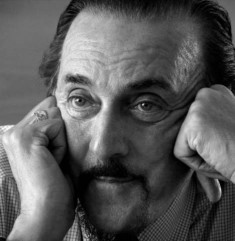| Philip Zimbardo | |
|---|---|
 |
|
| Psychologist | |
| Born | Mar. 23, 1933 New York City, New York |
| Nationality | American |
Philip Zimbardo achieved fame early in his career as a psychologist when he conducted the notorious Stanford Prison Study, a situation in which ordinary students were allowed to act as “mock prison guards” over another group of student volunteers who volunteered to be “mock prisoners.” The results of the two-week study were so unexpected and shocking it had to be abandoned within six days.
Early Years
Philip Zimbardo is the son of immigrant parents who came to New York City from Sicily. Zimbardo was born in New York in 1933. His father, George Zimbardo, was an electrician and his mother, Margaret Bisicchia, was a homemaker.
Young Philip graduated from James Monroe High School and then enrolled in Brooklyn College. He earned a BA degree there with a triple major in psychology, anthropology, and sociology. He earned his doctorate degree in psychology from Yale University in 1959. After a short stint teaching at Yale, he accepted a position teaching psychology at New York University. He joined the faculty at Stanford University in California in 1968.
The Prison Experiment
In 1971, Zimbardo received a grant from the U.S. Office of Naval Research. He used the money to conduct his famous Stanford Prison Study. In the study, 24 ordinary students were selected and tested to certify that they were “sane and well adjusted.” A portion of the students were assigned to play the role of prisoner and another group was to act as their guards for two weeks.
A mock prison was set up in the basement of a Stanford University building. The “guards” were armed with uniforms, whistles, and nightsticks. The situation rapidly devolved into one of violence and shocking behavior. The students playing the role of a guard quickly began to abuse their authority, dealing out harsh punishments while attempting to control every aspect of the lives of their “prisoners.”
The mock prisoners in turn became meek, but also rebellious. They took extreme action to protest their harsh treatment at the hands of the guards, including stripping off their clothing, going on hunger strikes, and barricading their doors with their bunks.
What Zimbardo observed was an unexpectedly rapid breakdown of normal behavior and the abandonment of kindness, fairness, compassion and other facets of typical society. The prisoner’s also developed symptoms of persecution, powerlessness, and hopelessness — even though all understood this was merely a study and a temporary situation.
Lasting Influence of the Experiment
Philip Zimbardo and much of the psychological community were stunned by the results of the Stanford Prison Experiment. It shaped much of Zimbardo’s thinking for the remainder of his career. He became interested in the root causes of “evil” and what prompted human beings to commit outrageous acts of violence, and to lose their sense of fairness and compassion. In 2007 Zimbardo published a book titled The Lucifer Effect, which was subtitled Understanding How Good People Turn Evil. The book summarizes 30 years of research starting with the now infamous prison study of 1971.
Changing Focus
 After his experience at Stanford, Zimbardo became interested in finding ways to help people with the tools of psychology. He concentrated in treating shyness by opening The Shyness Clinic in Menlo Park, California, which has the purpose of treating people who are shy.
After his experience at Stanford, Zimbardo became interested in finding ways to help people with the tools of psychology. He concentrated in treating shyness by opening The Shyness Clinic in Menlo Park, California, which has the purpose of treating people who are shy.
The behavior he observed in this clinic resulted in books about shyness which became bestsellers for Zimbardo, raising his profile. Zimbardo became well-respected across the field of psychology. He was tapped to author a number of popular college textbooks which became standards at thousands of universities and has been studied by millions of college psychology students over several decades. He was elected president of the American Psychological Association in 2002.
More National Attention
Zimbardo’s name entered national media headlines again in 2004 when he was asked to testify for the defense in the trial of Sgt. Ivan Frederick, a U.S. soldier who was facing a court martial for his role in the torture of Iraqi prisoners at Abu Ghraib Prison in Baghdad. Zimbardo argued that consideration should be made for the position that Frederick had been placed within, saying that his cruelty could have been produced in any individual under similar circumstances. His testimony was rejected by the judge, however, and Frederick was sentenced to eight years in prison.
Zimbardo’s Legacy and Profile
Philip Zimbardo’s long and successful career has made him among the most significant psychologists of his day. He retains a high profile, doing guest spots on national TV shows and is frequently sought out by the news media for his opinions on current events involving social and human behavior. In 2012, Zimbardo was awarded the Gold Medal from the American Psychological Association for Lifetime Achievement in the Science of Psychology.